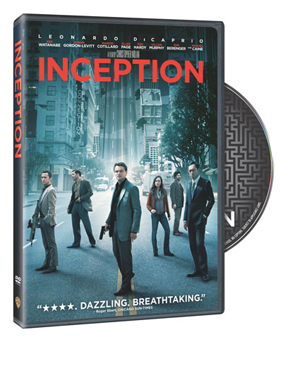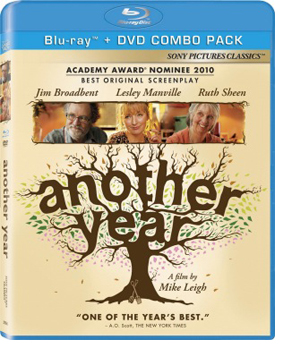 An Interdisciplinary Study of the Psyche
An Interdisciplinary Study of the Psyche
Film: Inception (Warner Bros. 2011)
Writer/Director: Christopher Nolan
Cast: Leonardo DiCaprio, Ken Watanabe, Joseph Gordon-Levitt, Marion Cotillard, Ellen Page, Tom Hardy, Cillian Murphy, Tom Berenger, Michael Caine
As Art
Dob visits his wife, Moll. In the high-rise where she committed suicide. They have a conversation. In a dream. Within a dream. So it isn’t really the high-rise, and this isn’t really his wife. But she really has killed herself, and Dob, in his grief, has created a mental projection of her that he can go and have a chat with whenever he gets lonely.
This is a conjectured future wherein a small group of elites have learned how to enter the unconscious, somnolent minds of whomever they please and steal their secrets. Dob has even figured out how to plant ideas in people’s heads. This gives them tremendous power over others?but it makes them vulnerable to a host of hidden dangers.
The dream warriors must be asleep themselves in order to enter the dreams of others or to draw others into their dreams. Time can pass very quickly in these dreams, and the dream warriors themselves can come under the control of malevolent psychic forces. As a technique to facilitate waking from one of these dream missions, Edith Piaf sings, ?Non, je regrette rien,? a kind of bravado theme song for foolhardy risk takers.
The idea of telekinetic dream manipulation is an absurd premise; even now I imagine people cogitating on the scientific possibility of this actually happening, just as they did for the equally absurd premise of The Matrix, another deeply significant science fiction masterpiece. But a premise should never be mistaken for the message of a film. Rather, the ?what if? is simply a catalyst that launches the viewer into a world of delicious speculation, opening doors into imaginative realms of possibility.
As Psychology
What these people do is like lucid dreaming except that they control someone else’s dream, not just their own. They actually participate in the dream, in the same identities they hold in waking life. As such they are not only manipulating the thoughts (and hence words and actions) of individuals but also contributing quite deliberately to the collective unconscious.
When an individual discovers that She’s dreaming, her unconscious, in the form of the characters populating her dream world, attacks her. These characters are projections of the dream world and can be used as weapons; they sense if you will a foreign substance among them and strive to obliterate it, in much the same way that our reasoning minds reject ideas that don’t jibe with our current outlooks.
The question is posed: what if It’s the dream That’s real? Carl Jung might have posited that relatively speaking, the dream is real as long as the dreamer believes It’s real, but that as soon as the dreamer is aware She’s dreaming, it becomes unreal and its influence over her becomes less direct.
The reverse can also be true; if the dreamer becomes convinced that reality is in fact a dream, this becomes her truth. It governs her beliefs, attitudes, desires, and choices.
As Comparative Religion
An insatiable longing for the Real had been planted in the unconscious mind of Moll. The thought was plugged into her head that her waking world was not in fact real and that she could only enter the real world by means of death. After She’s gone Dob loves her so much he practically deifies her, building his life around her memory.
Dob’s young sidekick, Ariadne (incidentally the name of the goddess who helped Theseus escape from the labyrinth by giving him a ball of red thread to unwind as he went in), addresses Dob’s remorse with this: ?Your guilt defines her. It’s what powers her. But you are not responsible for the idea that destroyed her.?
Individuals can plant ideas, but they don’t create them. Ideas are shaped and quickened in a realm deeper than the individual, a realm that the individual is tapped into but can’t really manipulate. Whether or not you believe in this realm is a matter of faith, but clearly if it exists it exists as real and unreal, as being and non-being?in other words, as a source of both good and evil. It’s the fountainhead of religious exploration, and whether you call it God or the collective unconscious, you can’t deny the reality of its power.
Inception fulfills eight of the Mindful Bard’s criteria for films well worth seeing 1) it is authentic, original, and delightful; 2) it poses and admirably responds to questions that have a direct bearing on my view of existence; 3) it stimulates my mind; 4) it provides respite from a sick and cruel world, a respite enabling me to renew myself for a return to mindful artistic endeavour; 5) it is about attainment of the true self; 6) it inspires an awareness of the sanctity of creation; 7) it renews my enthusiasm for positive social action; and 8) it makes me appreciate that life is a complex and rare phenomenon, making living a unique opportunity.
?Yet if hope has flown away
In a night, or in a day,
In a vision, or in none,
Is it therefore the less gone?
All that we see or seem
Is but a dream within a dream.?
Edgar Allan Poe, ?A Dream Within a Dream?
Inception was recommended to The Mindful Bard by Tarif Kanafani of Cairo, Egypt.


